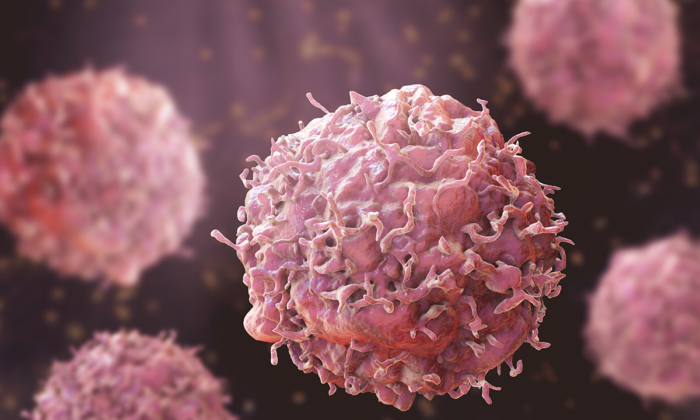Ultra-Processed Foods Impair Healing and Promote Colorectal Cancer Growth
Recent studies indicate that a high omega-6 fatty acid intake may play a role in chronic inflammation and the progression of colorectal cancer through intricate cellular processes.
New findings reveal that the consumption of contemporary processed foods may be contributing to the escalation of colorectal cancer, highlighting a connection between dietary habits and the inflammatory mechanisms that could promote tumor growth.
Published in Gut on Tuesday, the study revealed that chronic inflammation related to colorectal cancer (CRC) is derived from an excess of pro-inflammatory omega-6 fats within tumors, coupled with a deficiency of omega-3 fats that can counteract this inflammation. This fatty acid imbalance impedes the body’s healing capabilities and fosters cancer proliferation.
Both omega-6 and omega-3 fatty acids are essential nutrients that must be consumed through one’s diet, with omega-6 fats frequently found in ultra-processed food products.
Diet Influences Cancer Risk
In the study, researchers from USF and TGH Cancer Institute investigated the relationship between dietary fats and the genes involved in fat metabolism in relation to CRC. They examined 81 pairs of tumor and healthy tissue samples, concentrating on the body’s lipid creation and degradation processes, which can affect inflammation and tumor growth.
The team discovered that elevated levels of pro-inflammatory omega-6 fats, including linoleic acid (LA) and arachidonic acid (AA), were a driving force behind the cancer.
These results suggest that diets abundant in omega-6 fatty acids may amplify inflammation that aids in cancer development.
The Impact of Omega-6 Fatty Acids
Excess omega-6 fatty acids such as those found in ultra-processed foods and seed oils lead to an overproduction of AA. AA serves as a precursor for additional pro-inflammatory molecules that heighten inflammation and spur tumor growth.
Dr. Yeatman explained that the breakdown of these omega-6 fatty acids leads to the formation of inflammatory molecules known as leukotrienes, stating, “and that’s what we found in the tumors.”
Leukotrienes trigger immune cell activation, enhance inflammation, and damage tissues, thereby creating a favorable environment for tumor progression in CRC patients.
Common ultra-processed foods encompass meat products like sausages and hot dogs, chips, sweetened and alcoholic beverages, commercially produced bread, condiments, and ice cream.
Diet-Inflammation Link
In healthy tissues, the body transitions from inflammation to a healing state via a process called lipid class switching, where pro-inflammatory molecules convert to anti-inflammatory substances such as prostaglandins, which signal tissue repair.
A lack of effective prostaglandin levels leads to impaired class switching, resulting in sustained inflammation. Prostaglandins also help prevent the transformation of omega-6 fatty acids into inflammatory leukotrienes.
The research revealed that CRC tumors exhibit high amounts of pro-inflammatory molecules while showing a 70 percent reduction in prostaglandins, which are essential for resolving inflammation. This deficit disrupts the lipid class-switching process, perpetuating an environment that favors tumor growth and survival.
Chronic inflammation creates a microenvironment that enables genetic alterations to endure and eventually lead to cancer, as noted by Yeatman.
“Over recent decades, beginning around the 1950s, we have observed a significant increase in omega-6 levels in body fat,” he reiterated. “What dietary changes coincide with this? The surge in ultra-processed foods and large-scale agriculture geared towards reducing food production costs. This shift results in the widespread use of cheaper seed oils rather than more beneficial, pro-resolving oils such as olive and avocado oil.”
Immune Cell Challenges
Specialized white blood cells that initiated inflammation in the examined tumors also play a crucial role in CRC progression. Initially recruited to the tumor site to eliminate cancer cells, these immune cells eventually transform to support tumor growth.
Yeatman noted that similar processes are likely at play in other forms of cancer.
“These processes are possibly relevant to heart disease, diabetes, and Alzheimer’s disease,” he commented.
Possible Mitigation Strategies
Yeatman emphasized the importance of diet awareness and scrutinizing ingredient labels.
“These findings underscore the urgent need for further studies exploring specific dietary elements that may influence an individual’s risk of developing tumors,” stated Dr. Raaj Mehta, an instructor in medicine at Harvard Medical School, attending physician at Massachusetts General Hospital, and not involved in the study. “Prevention is crucial. We require better strategies to counsel patients about harmful foods and the reasons behind these recommendations.”
“Numerous studies have established a correlation between dietary habits and colorectal cancer risk. We suspect that this may involve the trillions of bacteria residing in our digestive systems.”
While the effects of preservatives and artificial sweeteners on the microbiome remain largely unknown, Yeatman highlighted that the microbiome plays a vital role in cancer development, as it processes fats and converts them into various compounds.
“We find ourselves oversaturated with arachidonic acid, which is omega-6,” he stated. While omega-6 is indeed an essential fatty acid, Yeatman clarified that he doesn’t intend to label it as harmful, but noted that excessive amounts of any substance can be detrimental. “A balanced one-to-one ratio is advisable.”
The results of this study also introduce the innovative concept of resolution medicine, a natural method for addressing inflammation. “This approach suggests that natural agents might promote lipid class switching,” added Yeatman.





